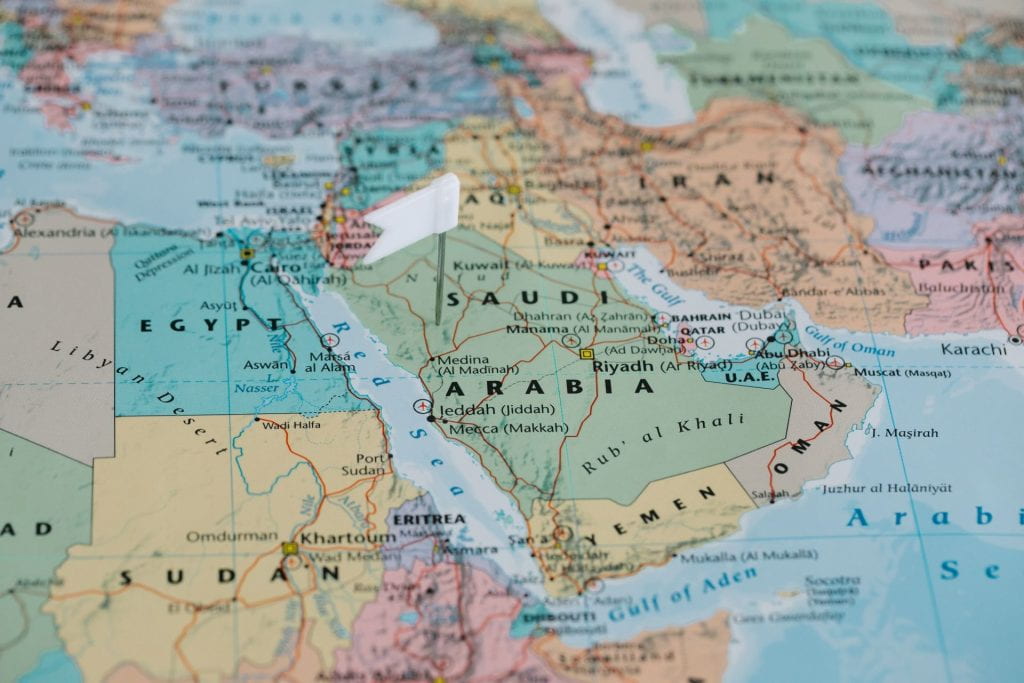
Alumni Series: an Interview with Mansoor Almalki
Jarrad Merlo
Mansoor Almalki completed his PhD in 2014 at the School of Languages and Linguistics, University of Melbourne, under the supervision of A/Prof Paul Gruba. Jarrad interviewed Mansoor about his experiences post-graduation and how his PhD afforded him the skills and resources to take up leadership roles at universities across Saudi Arabia, his home country.
***
You completed your PhD in 2014. How did you choose your PhD topic?
When I first started planning for my PhD in 2010, I was very passionate about online learning and technology. But A/prof Paul Gruba, my supervisor, said, “Let’s think outside the box.” Everyone was doing something on technology. I was like, “What do you want me to do?” And he said, “Let’s do something on language assessment. In Saudi, in four years time, you will be one of a kind. You’ll have something unique, it’d be very attractive, and you will contribute heavily to the field.” So I went, “Let’s do it!” Choosing the right field, choosing the right topic, is always important for post-PhD life as well.
Paul’s comment to you is correct: you’re a very valuable person if you’re the one person in the country that can do the job. But the question is: is there a job for you?
Making proactive decisions is key. In a country like Saudi Arabia, you can easily predict what will happen in the next five years. Being prepared for the future and moving ahead of others is crucial. This is what I have been doing by transitioning from regular language teaching to blended learning, then to blended assessment, and finally to accreditation. These proactive steps have helped me reach my current position as Vice President for Development and Quality.
I take it Paul played an important role for you during your PhD?
Paul contributed a lot to my academic identity, and even my personal identity. To be honest, at that time – I was like 30 or 31 – I feel like he did a lot for me. I was very lucky and fortunate to have someone like Paul standing by me. He was not only an academic who was providing guidance, but also a friend who was offering advice.

You seem to be able to work commercially as well as academically. You’re building and running educational institutes in Saudi Arabia. Where did this ability come from?
As someone who has experience in the English language teaching field, I often asked myself what the key requirements are for successful language centers and institutes, from recruitment to professional development, curriculum, and online platforms. During my PhD studies, I did a substantial amount on business-related topics and how to establish institutes, and found many successful stories that inspired me. Upon returning to Saudi, I was fortunate to find young people who were eager to collaborate and learn from my experiences. To be clear, my focus on self-learning is not just academic, but also business-oriented.
***
You started out as an English language teacher. Tracing cause and effect in language teaching and learning is notoriously challenging. Have your beliefs about language teaching and learning changed over time?
Yes, absolutely. One important consideration is the ongoing technological revolution that is happening worldwide, especially in places like Saudi Arabia. Technology has given people greater freedom and opened up new communication possibilities, enabling them to be contacted by anyone, anytime, anywhere. This has had a profound impact on mindsets, not just among teachers, but also students. For example, English used to be classified as a foreign language in Saudi Arabia, but it is now considered a second language. The English as a ‘foreign’ language (EFL) and English as a ‘second’ language (ESL) dichotomy is no longer relevant.
In the past, EFL was not given the priority it deserved as a language of science and communication, but nowadays people speak the language fluently without being schooled or going to language institutes. This shift has been influenced by both positive and negative thinking styles. In terms of language teaching and learning, this change has been absolutely positive. In the past, students would go to language schools to learn English from beginner to advanced levels, earn a certificate, and then find a job. However, this is no longer the case. Students now come to classes and schools with advanced language competency and rely on self-learning tools and technology to further their education. The remarkable shift from EFL to ESL in Saudi Arabia is evident to anyone who has visited the country.
***
Apart from helping run universities in Saudi, what else are you working on?
I’ve been working on translating a book for the last two years, and it was just recently published. The book (Teaching Language and Promoting Citizenship, Hennebry-Leung & Gayton, 2019) focuses on teaching language and promoting citizenship, which is a long-debated topic in places like Saudi Arabia where there is concern that English may negatively affect the younger generation’s identity and first language. However, the book was intentionally translated to demonstrate that learning a second language can enhance students’ identity and citizenship by equipping them with life competencies.

Second language acquisition has been shown to support and enhance students’ identities rather than threaten them. For individuals to be considered globally active citizens, they must believe in shared common values. One such value is respect, which is a universal human value. As someone who has observed my own children who were born in Australia, I can see that learning a second language positively impacts their ability to ask questions, reply, accept others, and show appreciation. These competencies cannot be developed if individuals are closed off to their own culture and identity or others’.
It was a delight chatting to you, Mansoor.
I’m immensely thankful and grateful for your invitation and for thinking about me to be interviewed.